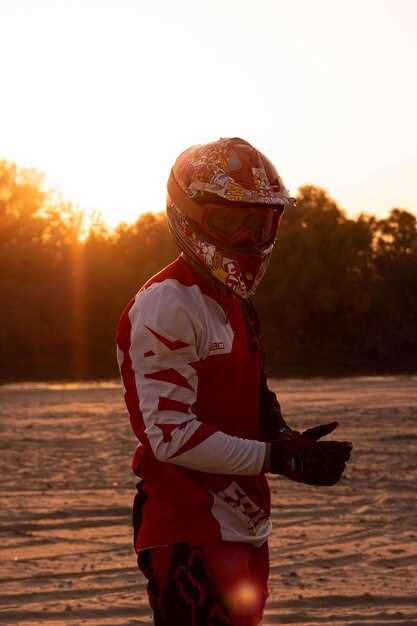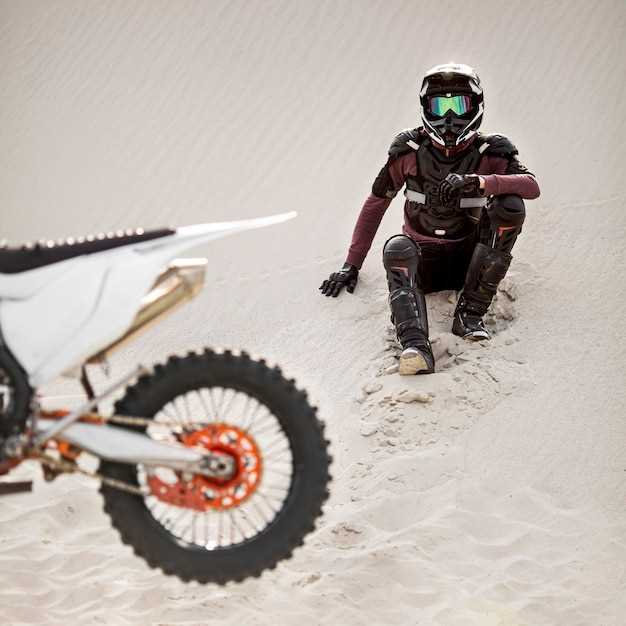
The world of off-road racing is a thrilling arena where skill, speed, and endurance converge to create a spectacle of adrenaline-driven excitement. However, behind the scenes of this exhilarating sport lies a rigorous framework of training and meticulous planning that these elite athletes adhere to daily. Understanding their routines provides valuable insights into the dedication required to excel in a highly competitive environment.
Elite off-road racers engage in a multifaceted approach to enhance their racing performance. Each day typically begins with physical conditioning tailored to improve strength, agility, and cardiovascular endurance. This foundational training is crucial as it prepares them not only to handle grueling courses but also to endure the physical demands posed by various terrains, from rocky hills to sandy deserts.
In addition to physical training, mental aspects play a significant role in their daily routines. Visualization techniques and strategic planning are integral in honing their focus, enabling racers to anticipate challenges and deploy tactics that can make the difference between victory and defeat. The culmination of these elements underscores how daily discipline and preparation are vital for success in the exhilarating yet unforgiving world of off-road racing.
Nutrition Plans Tailored for Peak Performance
Optimal nutrition is crucial for elite off-road racers seeking to enhance their performance during both racing and training. These athletes require specific dietary strategies that support endurance, muscle recovery, and overall energy levels. A well-balanced nutrition plan typically includes carbohydrates, proteins, and healthy fats, ensuring that every meal fuels their intense regimen.
Carbohydrates serve as the primary energy source for racing, providing the glycogen necessary for high-intensity activities. Elite racers often consume complex carbohydrates such as whole grains, fruits, and vegetables to maintain stable energy levels throughout their training sessions. Pre-race meals are carefully crafted to maximize glycogen stores, often featuring a mix of simple and complex carbs for quick and sustained energy release.
Protein intake is essential for muscle repair and recovery, particularly after rigorous training sessions. Off-road racers typically incorporate lean sources of protein, such as chicken, fish, legumes, and dairy, into their meals. This helps in addressing muscle breakdown and ensuring that the body is restored adequately before the next training session or race.
Healthy fats are also an integral part of a racer’s nutrition plan, providing a concentrated source of energy necessary for endurance. Foods such as avocados, nuts, seeds, and olive oil not only contribute to overall calorie intake but also support vital bodily functions, including hormone regulation and inflammation reduction.
Hydration is another critical component of nutrition for elite off-road racers. Maintaining proper fluid balance helps prevent fatigue and heat-related issues during competition. Hydration strategies often include electrolyte-rich beverages to replenish lost minerals and ensure peak performance during extended races.
Meal timing plays a vital role in fueling both training and racing. Consuming meals and snacks at strategic intervals helps keep energy levels high and promotes efficient digestion. Many racers adopt a routine of smaller, frequent meals instead of larger ones, allowing for consistent energy supply without the discomfort of fullness during intense physical activity.
Overall, nutrition plans for elite off-road racers are meticulously designed to match their specific needs, promoting peak performance in both racing and training environments. The right combination of macronutrients, hydration strategies, and meal timing can drastically influence an athlete’s ability to compete at the highest levels.
Training Regimens: Balancing Strength and Endurance

Elite off-road racers require a meticulously balanced training regimen that effectively merges strength and endurance to excel in their demanding sport. Their daily lifestyle encompasses various exercises that not only enhance their physical capacity but also prepare them mentally for the challenges of rugged terrains.
The strength component of their training focuses on building muscle power and stability. Off-road racing demands exceptional upper and lower body strength to maneuver through obstacles and maintain control of high-performance vehicles. Activities such as weightlifting and resistance training form the cornerstone of their strength regimen. These athletes invest time in squats, deadlifts, and press exercises, ensuring their core muscles are resilient enough to withstand the physical strains during competition.
On the other hand, endurance is pivotal for sustaining energy over long distances and unpredictable conditions. Road cycles, trail running, and rowing are prevalent additions to their routines, enhancing cardiovascular fitness and stamina. Elite racers often engage in high-intensity interval training (HIIT) to simulate the bursts of energy required during races, optimizing their ability to recover quickly between strenuous efforts.
Moreover, active recovery is a significant aspect of their training schedule. Engaging in low-impact activities such as yoga or swimming allows their bodies to recover while maintaining flexibility and minimizing the risk of injury. This holistic approach fosters resilience and readiness for the physical and mental demands of off-road racing.
In conclusion, the fusion of strength and endurance training defines the success of elite off-road racers. Their disciplined lifestyle and tailored programs not only enhance performance but also ensure they remain competitive in one of the most grueling motorsport arenas.
Mental Preparation Techniques for Race Day Success

Mental fortitude is as crucial as physical training in the life of elite off-road racers. To ensure optimal performance on race day, these athletes engage in various mental preparation techniques that align with their rigorous lifestyle. Implementing effective strategies can make a significant difference in how they approach the challenges of competitive racing.
Visualization is a fundamental technique utilized by racers. By picturing themselves navigating the track, overcoming obstacles, and achieving their goals, they create a mental roadmap. This process not only enhances focus but also reinforces their confidence, helping them to remain calm under pressure.
Additionally, goal setting plays a vital role in mental preparation. Elite racers often establish both short-term and long-term objectives. These goals guide their training routines and provide a benchmark for success, allowing them to track progress and stay motivated. Knowing what they aim to accomplish can significantly reduce anxiety and increase clarity on race day.
Mental Rehearsal is another powerful technique. Before the race, athletes often engage in a practice run in their minds, simulating the entire race experience. This includes visualizing potential challenges and planning responses. By mentally rehearsing various scenarios, they enhance their readiness to handle unexpected situations, ensuring they stay composed and focused.
Affirmations are commonly used to build a positive mindset. Many athletes develop personalized affirmations that resonate with their experiences and ambitions. Reciting these affirmations reinforces self-belief and cultivates a resilient attitude. This mental training complements their physical workouts, creating a well-rounded approach to race preparation.
Incorporating mindfulness techniques can also be beneficial. Practices such as meditation and controlled breathing help racers manage stress and elevate their concentration levels. By focusing on the present moment, they can minimize distractions and maintain clarity during extremely challenging race conditions.
Finally, having a strong support system is essential. Engaging with coaches, team members, and fellow racers fosters a sense of community and shared purpose. This network not only provides encouragement but also reinforces commitment to a healthy and focused lifestyle, crucial for peak performance on race day.




